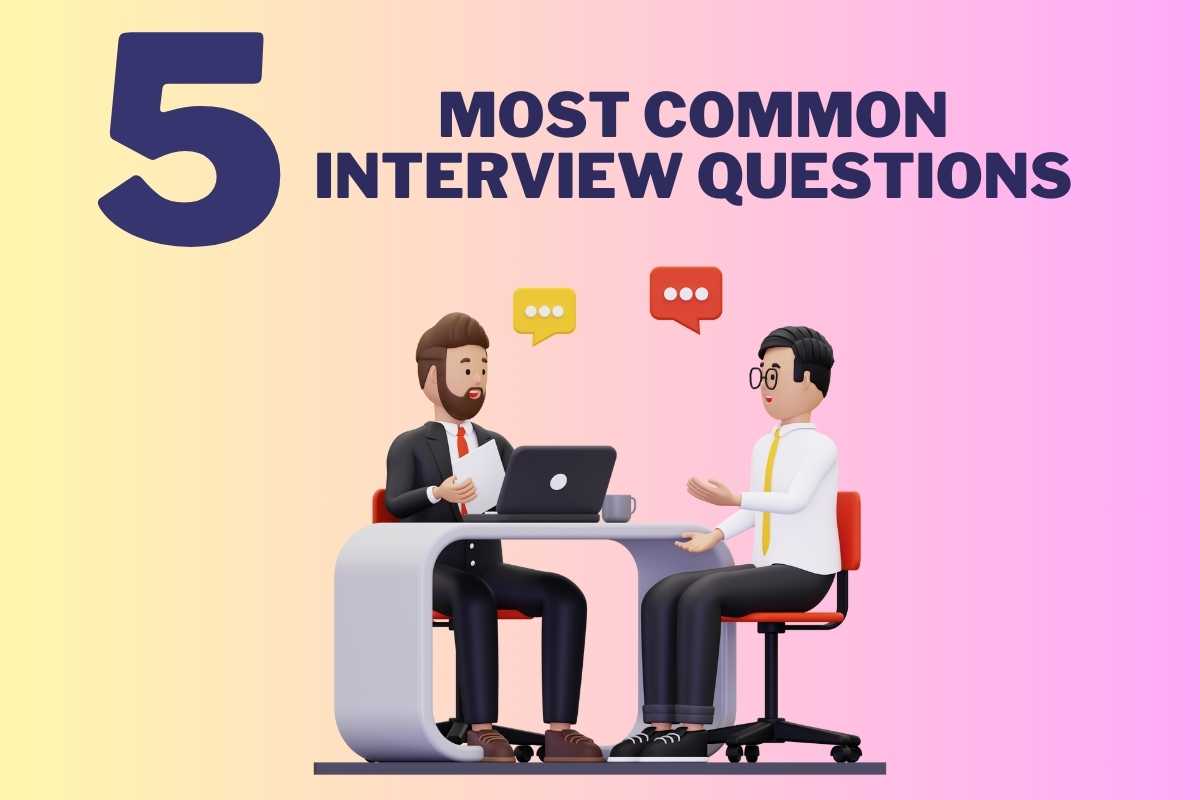Currently Empty: ₹0.00
Blog
Interview skills: 5 most common questions

1. “Can you tell me about yourself?”
“Can you tell me about yourself?” serves as an icebreaker and an opportunity for candidates to provide an overview of their professional background and personal attributes. It allows interviewers to gauge the candidate’s communication skills, confidence, and ability to articulate key aspects of their experiences. When answering this question, candidates typically provide a brief summary of their education, relevant work experience, skills, and achievements. It’s essential to tailor the response to align with the job requirements and emphasize aspects of your background that are most relevant to the position. Additionally, candidates should maintain a professional demeanor and focus on highlighting their qualifications and strengths that make them a suitable fit for the role and organization.
2. “What are your strengths and weaknesses?”
“What are your strengths and weaknesses?” is designed to assess a candidate’s self-awareness, honesty, and ability to reflect on their abilities. When addressing strengths, candidates should highlight skills and attributes that align with the job requirements and demonstrate their value as a potential employee. They may cite examples of past achievements or accolades to support their claims. Regarding weaknesses, candidates should choose an area for improvement that is not critical to the role and discuss steps they have taken to address or mitigate it. This demonstrates a proactive approach to personal development and a willingness to learn and grow. Ultimately, the response should strike a balance between showcasing strengths and acknowledging areas for improvement, while maintaining a positive and professional demeanor.
3. “Why do you want to work for our company?”
“Why do you want to work for our company?” delves into a candidate’s motivation and alignment with the organization’s values, mission, and culture. Employers ask this question to gauge a candidate’s level of interest and commitment to the role and company. Candidates should demonstrate their knowledge of the company by conducting thorough research beforehand and highlighting specific aspects that appeal to them, such as the company’s reputation, industry leadership, or innovative projects. Additionally, candidates can express how their skills and experiences align with the company’s goals and how they envision contributing to its success. By providing a thoughtful and tailored response, candidates can demonstrate their enthusiasm for the opportunity and their potential fit within the organization.
4. “Can you provide an example of a time when you faced a challenge and how you overcame it?”
“Can you provide an example of a time when you faced a challenge and how you overcame it?” is a behavioral question aimed at assessing a candidate’s problem-solving skills, resilience, and ability to handle adversity. Interviewers use this question to gain insight into the candidate’s past experiences and how they approach challenges. Candidates should select a specific example from their professional or personal life where they encountered a significant obstacle or difficulty. They should then describe the actions they took to address the challenge, highlighting their problem-solving strategies, decision-making process, and the outcomes achieved. By providing a detailed and well-articulated response, candidates can demonstrate their ability to overcome obstacles and navigate challenging situations effectively, showcasing their suitability for the role.
5. “Where do you see yourself in five years?”
“Where do you see yourself in five years?” probes a candidate’s career goals, ambitions, and alignment with the company’s long-term objectives. Employers use this question to gauge a candidate’s level of ambition, motivation, and potential for growth within the organization. When responding, candidates should convey a realistic yet aspirational vision for their future career trajectory, demonstrating an understanding of the industry and the company’s opportunities for advancement. They should also highlight their commitment to continuous learning and professional development, emphasizing how their goals align with the company’s mission and values. By articulating a clear and compelling vision for their career progression, candidates can showcase their enthusiasm for the role and their potential to contribute positively to the organization’s success.



